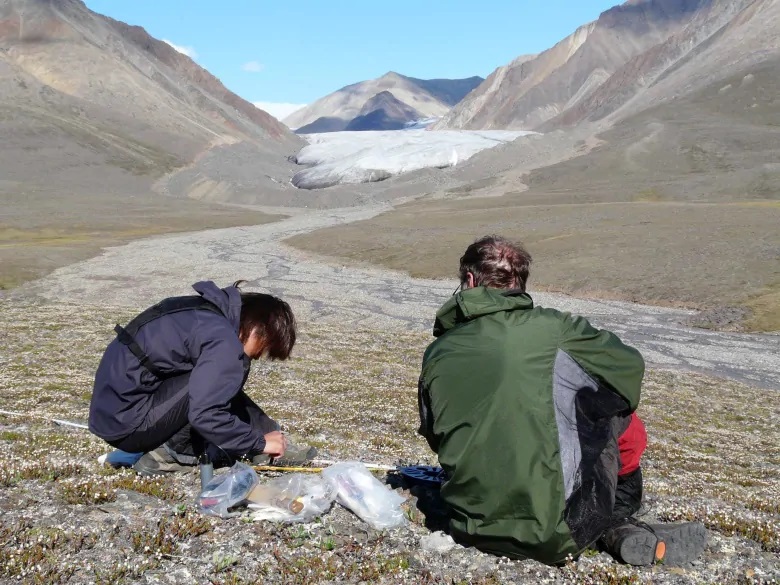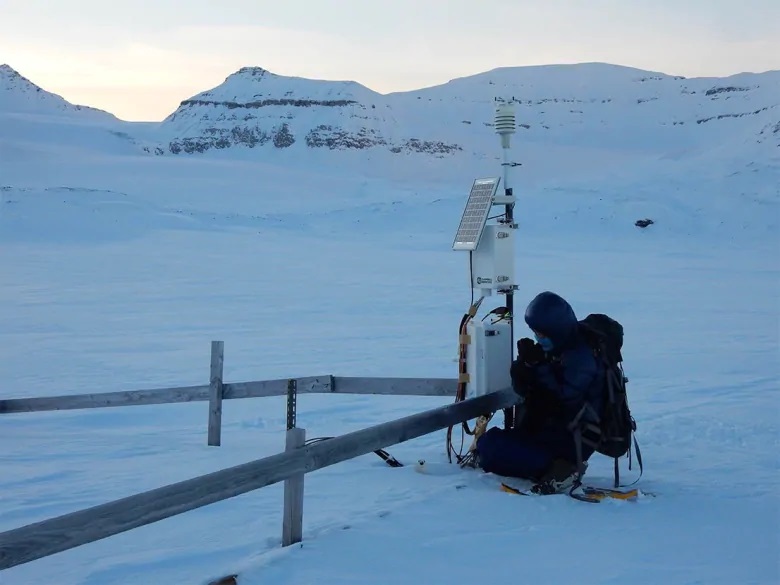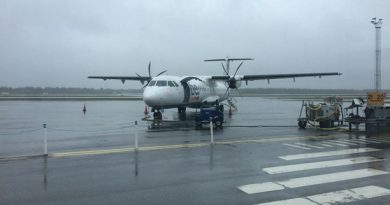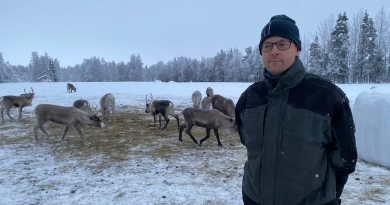Japan scopes out future Arctic research in Cambridge Bay, Northern Canada

A Japanese research institute is seeking to deepen its collaboration with Canadian scientists and Inuit to further research in the Arctic and understanding of the impacts of climate change.
Ten members of Japan’s National Institute of Polar Research, including natural scientists and anthropologists, held meetings in Cambridge Bay, Nunavut (Canadian central Arctic), this week to share information about its past and future polar projects.
“Global warming in general is a big issue in Japan,” said Tetsuo Sueyoshi from NIPR.
He said the researchers also asked community members what they think should be studied.
NIPR supports researchers in Japan with cutting edge infrastructure and support for Arctic and Antarctic research. It also collaborates with other countries and academic organizations.
“Decreases in sea ice in the Arctic has the remote effect in Japan for making changing weather patterns and producing some severe, extreme events,” said Sueyoshi.
Just this week, Japan experienced heavy rain that led to landslides and the evacuation of one million people from its most southern region.
“Simply, it’s making more [natural] disasters,” said Sueyoshi, who says ongoing monitoring in the Arctic is key to understanding these changes.

Japan has a long history of polar research, including observing the atmosphere, ice sheets, ecosystems, glaciers, the upper atmosphere, the aurora and the Earth’s magnetic field.
The first Japanese research team visited Antarctica by icebreaker in 1960. NIPR has established a research station in Svalbard, Norway, with research projects in Greenland, Russia, Antarctica and Canada.
The Canadian and Japanese governments signed an agreement on co-operation in science and technology in 1986.
In the most recent collaboration in Cambridge Bay, NIPR is leading a pan-Arctic isotope monitoring network and leading a comparative study on Inuit Qaujimajatuqangit (Inuit knowledge) with “modern science.”
Researchers with NIPR are also comparing sea ice from Sea of Okhotsk in Japan and sea ice in Cambridge Bay. Both have unique ecosystems and can offer new knowledge about patters of sea ice formation.
This kind of exchange and collaboration is exactly what Polar Knowledge Canada wants to see at the Canadian High Arctic Research Station, a world-class Arctic research hub in Cambridge Bay.
“We don’t have the expertise in Canada to do everything,” said Alain Leclair, director of science and technology at Polar Knowledge Canada.
Researchers began occupying parts of the state-of-the-art campus in 2015. Polar Knowledge Canada says while the campus is largely operational, the “formal opening date of the completed campus is still to be confirmed.”
“By collaborating with them, we can bridge those gaps [in knowledge] and make sure we have a more general understanding of these changes happening in the [Arctic] environment,” said Leclair.
He points to Japan’s expertise in sea ice biochemical research, something Canadian researchers are less familiar with, he said.
“It’s obviously a win-win situation for everybody,” said Leclair on NIPR’s recent visit.

The Japanese delegation also stressed interest in gaining a better understanding of how Inuit Qaujimajatuqangit — or Inuit knowledge — can be used to guide and inform future research projects.
“We want to have respectful inclusion of Indigenous knowledge with science,” said Leclair. “It’s really part of the collaboration we are establishing with all the countries we are working with.”
The delegation from Japan’s National Institute of Polar Research is now heading home. NIPR says the next step is to finalize the theme for its five-year science plan. At this point NIPR says it has not yet booked time at CHARS.
Polar Knowledge Canada says this summer, along with Canadian scientists, it’s expected to host researchers from Canada, Spain, New Zealand, Germany, Austria, the US, UK, Japan, Sweden, and South Korea.
Last year researchers visiting the CHARS campus worked on a total of 23 projects — nearly a quarter of them came from nine other countries.
Related stories from around the North:
Canada: Ottawa must raise funding for climate science or risk falling behind, scientists say, CBC News
Finland: River ice and white hares: Finnish scientists study signs of climate change in nature, Yle News
Norway: Arctic fox’s rapid journey from Svalbard to Northern Canada stuns researchers, The Independent Barents Observer
Russia: Russian researchers evacuate camp as Arctic ice cracks, The Independent Barents Observer
Sweden: Local councils more interested in climate change preparedness, Radio Sweden
United States: U.S. House calls for more research on ocean acidification, Alaska Public Media



